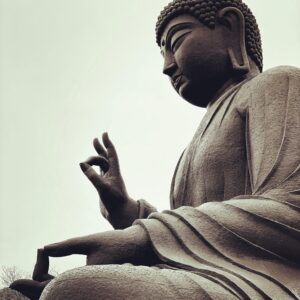The Buddha

Siddhartha Gautama, the founder of Buddhism, was born into a life of privilege around 563 BCE. Renouncing his opulent lifestyle, he embraced a path of extreme self-discipline and ascetic practices. After forty-nine days of profound meditation, he attained enlightenment and became the Buddha, the “Enlightened One.” In 528 BCE, he publicly shared his awakening and gathered a group of dedicated disciples who spread his teachings throughout northern India.
Buddhism places significant emphasis on individual responsibility for one’s happiness. The Buddha articulated the Four Noble Truths as fundamental principles: suffering exists, it arises from desire, it can be extinguished, and the Noble Eightfold Path leads to its cessation.
The Noble Eightfold Path, comprising right view, right intention, right speech, right action, right livelihood, right effort, right mindfulness, and right concentration, provides a practical framework for spiritual development. By following this path, Buddhists aim to liberate themselves from the cycle of rebirth and suffering, known as samsara.
Many adherents to this path embraced a monastic lifestyle, renouncing worldly possessions and dedicating themselves to spiritual pursuits. This monastic tradition has been a cornerstone of Buddhist practice for centuries.
